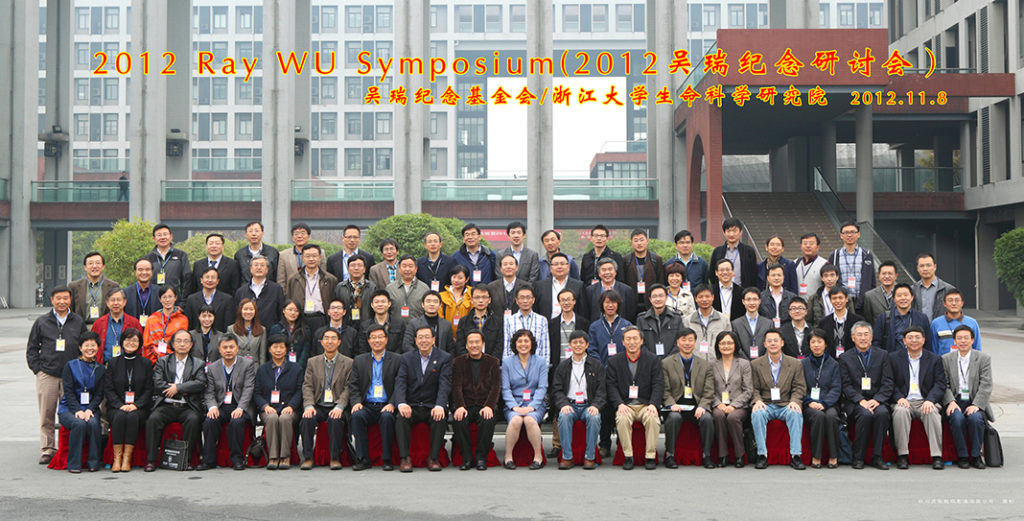THE RAY WU PRIZE
2012 Ray Wu Prize Winner
2012 Awardees at Ceremony
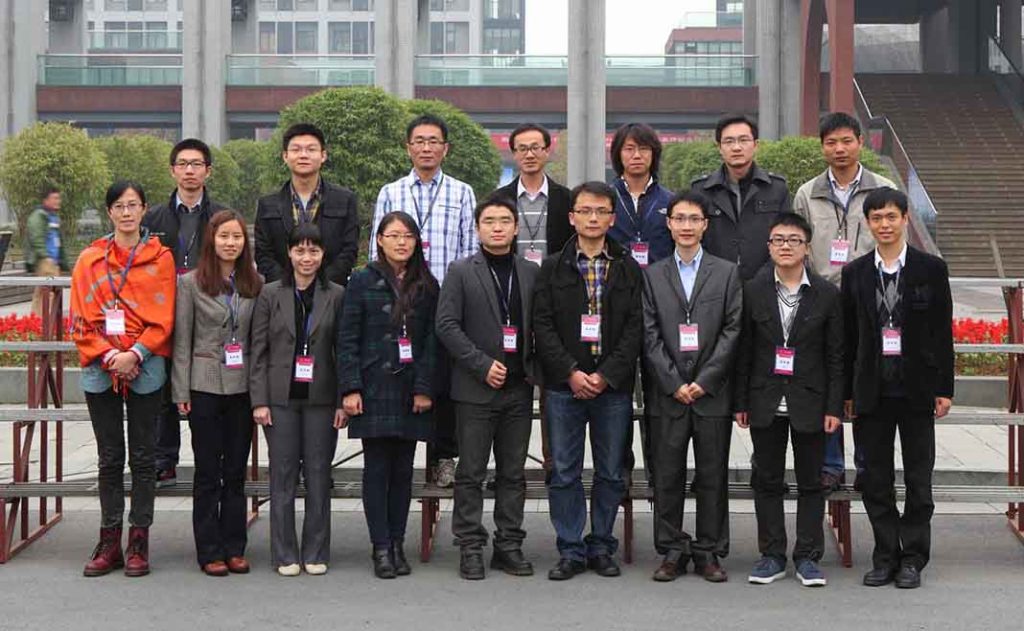
Jiazhi Hu
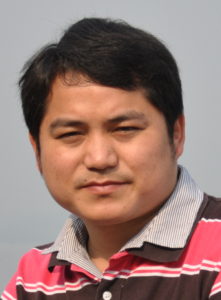 Background: Mr. Hu entered the PhD program at Peking University in 2006. His advisor is Dr. Daochun Kong. In his studies of mechanisms of DNA replication using multiple approaches, Mr. Hu made a major breakthrough that Dna2 cleavage of regressed nascent strands prevents fork reversal and thus stabilizes stalled forks to maintain genome stability during replication stress.
Background: Mr. Hu entered the PhD program at Peking University in 2006. His advisor is Dr. Daochun Kong. In his studies of mechanisms of DNA replication using multiple approaches, Mr. Hu made a major breakthrough that Dna2 cleavage of regressed nascent strands prevents fork reversal and thus stabilizes stalled forks to maintain genome stability during replication stress.
Citation: Mr. Hu is a talented and hard working student with the ability to think and work independently. During the interview, he addressed all questions clearly, and has shown broad knowledge beyond his field of research. He is committed to his work. Overall, the committee thinks that he is clearly an outstanding graduate student.
This prize is sponsored by Morningside Foundation.
Chuanchao Wang
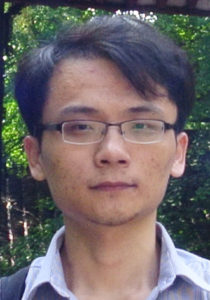 Background: Mr. Wang received his BS from Ocean University of China in 2010, and is conducting his Ph.D. study in the field of anthropology under the direction of Dr. Hui Li at Fudan University. During the past two years, he mainly studied the origin and diversification of the Chinese and other East Asian populations utilizing genomic tools as well as archaeological, linguistic, historical, and ethnological methods. He also applied biostatistic and bioinformatic methods to investigate the development rules of the languages.
Background: Mr. Wang received his BS from Ocean University of China in 2010, and is conducting his Ph.D. study in the field of anthropology under the direction of Dr. Hui Li at Fudan University. During the past two years, he mainly studied the origin and diversification of the Chinese and other East Asian populations utilizing genomic tools as well as archaeological, linguistic, historical, and ethnological methods. He also applied biostatistic and bioinformatic methods to investigate the development rules of the languages.
Citation: Mr. Wang is an outstanding student and has accomplished significantly in a short period of time (He is only a second year student). He made a very good impression during the interview by offering clear and concise answers to all the questions. His broad knowledge in genomics and bioinformatics would benefit greatly for his future research in the field. His work is unique in China and is important for anthropology of Chinese. He demonstrated independent thinking and a strong desire to have a career in science.
This prize is sponsored by Cell Signaling Technology.
Pengyu Huang
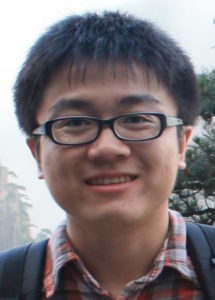 Background: Mr. Huang received his BS from Huazhong University of Science and Technology University in 2008, and entered the PhD program in Institute of Biochemistry and Cell Biology (IBCB), Shanghai Institutes for Biological Sciences, Chinese Academy of Sciences, where he studies under Dr. Li-Jian Hui. His research focuses on cell reprogramming. His work showed that one can induce mouse mesenchymal fibroblasts directly into iHep cells by transduction of three hepatic transcription factors Foxa3, Gata4, HNF1a, and inactivation of P19Arf. iHep cells show typical epithelial morphology, express hepatic genes and acquire hepatocyte functions. Importantly, using fumarylacetoacetate hydrolase-deficient mice as a liver injury model, he showed that transplanted iHep cells could repopulate the liver and rescue recipients from death by restoring liver functions. This work provides a novel strategy to generate functional hepatocyte-like cells for liver engineering and regenerative medicine to treat liver diseases.
Background: Mr. Huang received his BS from Huazhong University of Science and Technology University in 2008, and entered the PhD program in Institute of Biochemistry and Cell Biology (IBCB), Shanghai Institutes for Biological Sciences, Chinese Academy of Sciences, where he studies under Dr. Li-Jian Hui. His research focuses on cell reprogramming. His work showed that one can induce mouse mesenchymal fibroblasts directly into iHep cells by transduction of three hepatic transcription factors Foxa3, Gata4, HNF1a, and inactivation of P19Arf. iHep cells show typical epithelial morphology, express hepatic genes and acquire hepatocyte functions. Importantly, using fumarylacetoacetate hydrolase-deficient mice as a liver injury model, he showed that transplanted iHep cells could repopulate the liver and rescue recipients from death by restoring liver functions. This work provides a novel strategy to generate functional hepatocyte-like cells for liver engineering and regenerative medicine to treat liver diseases.
Citation: Mr. Huang works hard and made an important breakthrough. His work is a milestone. He has in depth knowledge of his research area, and at the same time broad knowledge of life science research. He has some good ideas in his future plans, which reflects well on his own independent thinking.
This prize is sponsored by Abcam/Epitomics, Inc.
Hui Yang
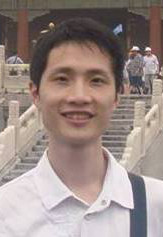 Background: Mr. Yang received his bachelor’s degree in life sciences and biotechnology from Shanghai Jiao Tong University in 2007, and is conducting his Ph.D. research in the laboratory of Dr. Jinsong Li at the Institute of Biochemistry and Cell Biology, Shanghai Institutes for Biological Sciences, Chinese Academy of Sciences. His research focuses on reprogramming in fertilization and somatic cell nuclear transfer (SCNT). He has successfully accomplished four projects, i.e. nuclear transfer with intact MII oocytes, fertilization ability of two-cell blastomeres, the role of Tet3 in epigenetic reprogramming and establishment of haploid embryonic stem cell. He has recently made a major breakthrough in transgenesis using haploid embryonic stem cells. He is exploring the possibility of using this approach to alter the genome of other species such as monkeys.
Background: Mr. Yang received his bachelor’s degree in life sciences and biotechnology from Shanghai Jiao Tong University in 2007, and is conducting his Ph.D. research in the laboratory of Dr. Jinsong Li at the Institute of Biochemistry and Cell Biology, Shanghai Institutes for Biological Sciences, Chinese Academy of Sciences. His research focuses on reprogramming in fertilization and somatic cell nuclear transfer (SCNT). He has successfully accomplished four projects, i.e. nuclear transfer with intact MII oocytes, fertilization ability of two-cell blastomeres, the role of Tet3 in epigenetic reprogramming and establishment of haploid embryonic stem cell. He has recently made a major breakthrough in transgenesis using haploid embryonic stem cells. He is exploring the possibility of using this approach to alter the genome of other species such as monkeys.
Citation: Mr. Yang made many unique and crucial contributions to a series of important work in his group. His method is potentially a novel approach to generate genetically modified animals. He demonstrated good understanding about his field, and is especially knowledgeable about embryonic development. He gave sharp and precise answers to all the questions.
This prize is sponsored by BioVeda.
Zhaoqing Ba
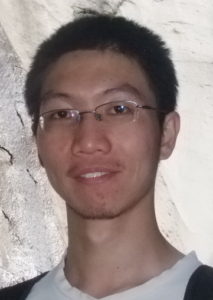 Background: Mr. Ba entered the Ph.D. program in National Institute of Biological Science (NIBS)/Beijing Normal University in 2008. His advisor is Dr. Yijun Qi. He works on the mechanisms and functions of small RNA pathways in plants. He has conceived the ideas and worked on identification of miRNA targets through profiling AGO1-associated RNAs and the examination of the role of small RNAs in DSB repair. He wisely chose a well-established reporter system for assaying DSB repair efficiency in RNAi mutants, which led to the discovery that small RNAs (named diRNAs for DSB-induced small RNAs) are specifically produced from the sequences around the DSB site and that diRNAs are important for DSB repair.These findings represent a conceptual breakthrough of the mechanism of DSB repair.
Background: Mr. Ba entered the Ph.D. program in National Institute of Biological Science (NIBS)/Beijing Normal University in 2008. His advisor is Dr. Yijun Qi. He works on the mechanisms and functions of small RNA pathways in plants. He has conceived the ideas and worked on identification of miRNA targets through profiling AGO1-associated RNAs and the examination of the role of small RNAs in DSB repair. He wisely chose a well-established reporter system for assaying DSB repair efficiency in RNAi mutants, which led to the discovery that small RNAs (named diRNAs for DSB-induced small RNAs) are specifically produced from the sequences around the DSB site and that diRNAs are important for DSB repair.These findings represent a conceptual breakthrough of the mechanism of DSB repair.
Citation: Mr. Ba did a lot of work and made breakthroughs in a unique system. His work revealed a novel mechanism of DNA repair, which may have a big impact in the field. He has broad knowledge of the field. His answers are clear. He was able to describe the novelty of his work, reflecting well on his own independent thinking.
This prize is sponsored by Yu and Wei Foundation.
Hui Yang
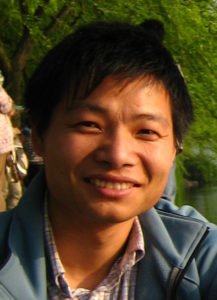 Background: Mr. Yang received his BS from Huazhong University of Science and Technology University with a No. 1 ranking in his class. He began his Ph.D. study under the direction of Dr. Yue Xiong at Fudan University in 2008. He is involved in two highly competitive projects: 1) Investigating the effect of altered metabolites, especially the TCA metabolites, on changing epigenetics, and 2) identifying epigenetic biomarkers for clinical cancer diagnosis.
Background: Mr. Yang received his BS from Huazhong University of Science and Technology University with a No. 1 ranking in his class. He began his Ph.D. study under the direction of Dr. Yue Xiong at Fudan University in 2008. He is involved in two highly competitive projects: 1) Investigating the effect of altered metabolites, especially the TCA metabolites, on changing epigenetics, and 2) identifying epigenetic biomarkers for clinical cancer diagnosis.
Citation: Mr. Yang is very energetic and has recently obtained interesting results, which could expand his study into new directions and potentially make paradigm-shifting findings. He is very familiar with the general regulation of gene expression and is able to think quite independently. During the interview, he responded well to most questions.
This prize is sponsored by Mr. Steve Yang and Ms. Iris Chu.
Li Zhang
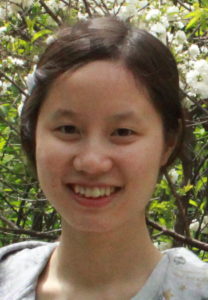 Background: Ms. Zhang received her BS degree from Sichuan University in 2008, and entered the Ph.D. program in National Institute of Biological Science (NIBS)/Peking Union Medical College in 2008. Her advisor is Dr. Feng Shao. Her work reveals a novel mechanism in bacterial inhibition of host innate immune defense, and for the first time shows that cysteine methylation, as a new posttranslational modification, can regulate eukaryotic signal transduction. Cysteine methylation in zinc-finger motifs of TAB2/3 by a bacterial effector called NleE disrupts ubiquitin-chain binding of TAB2/3 and subsequently blocks host NF-κB signaling.
Background: Ms. Zhang received her BS degree from Sichuan University in 2008, and entered the Ph.D. program in National Institute of Biological Science (NIBS)/Peking Union Medical College in 2008. Her advisor is Dr. Feng Shao. Her work reveals a novel mechanism in bacterial inhibition of host innate immune defense, and for the first time shows that cysteine methylation, as a new posttranslational modification, can regulate eukaryotic signal transduction. Cysteine methylation in zinc-finger motifs of TAB2/3 by a bacterial effector called NleE disrupts ubiquitin-chain binding of TAB2/3 and subsequently blocks host NF-κB signaling.
Citation: Ms. Zhang did an excellent job, and made a novel finding which can be considered as a “landmark”. She mastered the general biochemistry techniques. Her answers are clear and good. She is highly motivated and enthusiastic.
This prize is sponsored by Novartis.
Shu Zhu
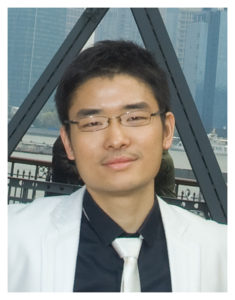 Background: Mr. Zhu received his BS degree from University of Science &Technology of China, and entered the Ph.D. program of Institute of Health Science, Shanghai Institutes for Biological Science, Chinese Academy of Sciences under the direction of Dr. Youcun Qian in 2006. His Ph.D. thesis is investigating molecular mechanism of development and pathogenesis of autoimmune diseases for potential therapeutic applications. He identified TRAF3 as the first receptor proximal negative regulator in IL-17 signaling and verified the in vivo function of TRAF3 in experimental autoimmune encephalomyelitis. He also contributed to another study on the role of IL-17RE on mucosal immunity.
Background: Mr. Zhu received his BS degree from University of Science &Technology of China, and entered the Ph.D. program of Institute of Health Science, Shanghai Institutes for Biological Science, Chinese Academy of Sciences under the direction of Dr. Youcun Qian in 2006. His Ph.D. thesis is investigating molecular mechanism of development and pathogenesis of autoimmune diseases for potential therapeutic applications. He identified TRAF3 as the first receptor proximal negative regulator in IL-17 signaling and verified the in vivo function of TRAF3 in experimental autoimmune encephalomyelitis. He also contributed to another study on the role of IL-17RE on mucosal immunity.
Citation: He discovered the role of miR-23b in regulation of autoimmune diseases. Collection of the disease tissues was a major effort. Systematical analyses led to the important findings mentioned above. He has a broad interest in autoimmune diseases, and he worked on several areas including some out of his own initiation. He made a good presentation, and showed enthusiasm in science.
This prize is sponsored by CBIS.
Yue Zhao
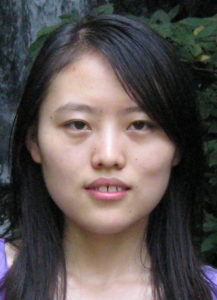 Background: Ms. Zhao received her BS degree from Nankai University in 2007, and is conducting her Ph.D. research in the laboratory of Dr. Feng Shao in the National Institute of Biological Science (NIBS)/Peking Union Medical College. Her project has been centered on how microbes activate the host inflammation pathway. She works on an inflammasome complex mediated by an NOD-Like receptor protein called NLRC4. She identified the NAIP family of NLR proteins as the inflammasome receptors for bacterial flagellin and the TTSS apparatus component. At the same time, she confirmed the presumed innate immune receptor function for the large NLR family of proteins.
Background: Ms. Zhao received her BS degree from Nankai University in 2007, and is conducting her Ph.D. research in the laboratory of Dr. Feng Shao in the National Institute of Biological Science (NIBS)/Peking Union Medical College. Her project has been centered on how microbes activate the host inflammation pathway. She works on an inflammasome complex mediated by an NOD-Like receptor protein called NLRC4. She identified the NAIP family of NLR proteins as the inflammasome receptors for bacterial flagellin and the TTSS apparatus component. At the same time, she confirmed the presumed innate immune receptor function for the large NLR family of proteins.
Citation: Ms. Zhao found out that the intracellular proteins from the pathogen bind to NLR, which triggers the caspase1 pathway. Her project required efforts and unique approaches to map the interactions between the receptor and the target. She appears to have read broadly so that she could apply multiple approaches to overcome the difficulty. She is knowledgeable, and can sometimes go beyond the current project. During the interview, she could address a broad range of questions, and is quite excited about her own work.
Chao Wang
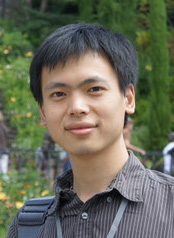 Background: Mr. Wang obtained his bachelor’s degree from Xiamen University in 2007, and is conducting his Ph.D. research in the laboratory of Dr. Zhizheng Wang at the Institute of Biophysics, Chinese Academy of Sciences. His research concerns the mechanism of action of human Protein disulfide isomerase (hPDI), a key enzyme involved in protein folding. He has made several findings during his doctoral research including 1) the major flexibility of the whole hPDI molecule is due to the intrinsic flexibility of the b’xa’ but not the ab region as in yeast PDI; 2) the oxidation of domain a’ releases the compact conformation and exposes the substrate binding residues to facilitate its high chaperone activity; and 3) he succeeded in producing high quality crystals and determining the 3D structures of hPDI at high resolution not only in the reduced but also in oxidized states.
Background: Mr. Wang obtained his bachelor’s degree from Xiamen University in 2007, and is conducting his Ph.D. research in the laboratory of Dr. Zhizheng Wang at the Institute of Biophysics, Chinese Academy of Sciences. His research concerns the mechanism of action of human Protein disulfide isomerase (hPDI), a key enzyme involved in protein folding. He has made several findings during his doctoral research including 1) the major flexibility of the whole hPDI molecule is due to the intrinsic flexibility of the b’xa’ but not the ab region as in yeast PDI; 2) the oxidation of domain a’ releases the compact conformation and exposes the substrate binding residues to facilitate its high chaperone activity; and 3) he succeeded in producing high quality crystals and determining the 3D structures of hPDI at high resolution not only in the reduced but also in oxidized states.
Citation: Mr. Wang is an energetic guy. He did good work and has excellent understanding of the implications as well as limitations of his work. The project dissects the structure of the protein and mapped a little more of the molecular mechanisms of the reactions. The work is a typical biochemical study of a protein. He can answer all of questions clearly with fluent English.
Yu Mu
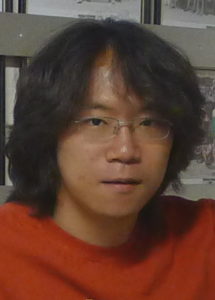 Background: Mr. Mu entered the Ph.D. program in Institute of Neurosicence, Shanghai Institutes for Biological Science, Chinese Academy of Science in 2008. His advisor is Dr. Jiulin Du. He is involved in investigating the role of visual input in modulating auditory signaling in the zebrafish. Through an elegant combination of zebrafish genetics, electrophysiological recording (in vivo whole-cell recording), and behavioral studies, he has shown the light stimulus within a critical time window of a few seconds prior to the onset of a sound stimulus that evoked startle responses in zebrafish larvae could enhance the startle responses by modulating the signal-to-noise ratio of the auditory nerve spiking activity and the synaptic efficacy of auditory nerve. This modulation was also shown to be mediated by specific group of dopamine neurons. He has recently developed an excellent behavioral paradigm for studying learning and memory in zebrafish.
Background: Mr. Mu entered the Ph.D. program in Institute of Neurosicence, Shanghai Institutes for Biological Science, Chinese Academy of Science in 2008. His advisor is Dr. Jiulin Du. He is involved in investigating the role of visual input in modulating auditory signaling in the zebrafish. Through an elegant combination of zebrafish genetics, electrophysiological recording (in vivo whole-cell recording), and behavioral studies, he has shown the light stimulus within a critical time window of a few seconds prior to the onset of a sound stimulus that evoked startle responses in zebrafish larvae could enhance the startle responses by modulating the signal-to-noise ratio of the auditory nerve spiking activity and the synaptic efficacy of auditory nerve. This modulation was also shown to be mediated by specific group of dopamine neurons. He has recently developed an excellent behavioral paradigm for studying learning and memory in zebrafish.
Citation: Mr. Mu designed a visual-auditory program in zebrafish and mapped the neuron modulation by using visual-auditory relationship. He showed potential for innovation, and has interesting ideas about new topics on virtual reality of perception. He did excellent work and knows his field very well. He was able to notice unexpected effects of the experimental conditions. He gives a very clear presentation to a complex study, and shows good enthusiasm in science.
Feng Feng
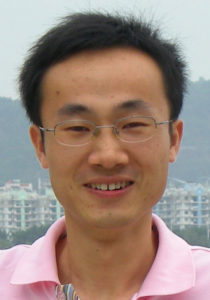 Background: Mr. Feng received his bachelor degree from Henan Agriculture University in 2005, and entered the Ph.D. program in the laboratory of Dr. Chaozu He at Tsinghua University in 2008. His project is to study the interaction of plants with pathogenic bacteria. He demonstrated that the Xcc effector protein AvrAC is able to inhibit both PTI and RPM1-specified ETI by targeting BIK1 and RIPK, two receptor-like cytoplasmic kinases that are known to mediate immune signaling in Arabidopsis. AvrAC is a uridine 5’-monophosphoate transferase that uridylylates the conserved serine and threonine residues in the activation loop of BIK1 and RIPK.
Background: Mr. Feng received his bachelor degree from Henan Agriculture University in 2005, and entered the Ph.D. program in the laboratory of Dr. Chaozu He at Tsinghua University in 2008. His project is to study the interaction of plants with pathogenic bacteria. He demonstrated that the Xcc effector protein AvrAC is able to inhibit both PTI and RPM1-specified ETI by targeting BIK1 and RIPK, two receptor-like cytoplasmic kinases that are known to mediate immune signaling in Arabidopsis. AvrAC is a uridine 5’-monophosphoate transferase that uridylylates the conserved serine and threonine residues in the activation loop of BIK1 and RIPK.
Citation: Mr. Feng is dedicated to his work and showed some impressive accomplishments. He is knowledgeable in the field. He was able to notice unexpected results that helped the progress. His ways of thinking and description are straight forward. He has good knowledge about plant immune system.
Zhongwei Li
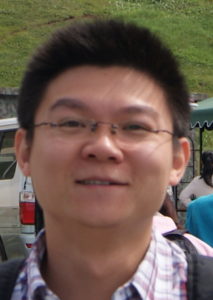
Background: Mr. Li received his bachelor degree from Sichuan University in 2007, and is conducting his Ph.D. research in the laboratory of Dr. Ye-Guang Chen at Tsinghua University. His major research interest is to investigate how transforming growth factor-ß and Wnt signaling is regulated. He found out that the mouse embryonic stem cell can be maintained without loss of pluripotency in culture medium supplemented with LIF and BMP (bone morphogenic protein). Moreover, BMP can upregulate the dual specific phosphatase DUSP9, which in turn dephosphorylates and inactivates ERK.
Citation: He did an outstanding job to link two key pathways that have an effect on mESC maintenance, and this work made a step forward in defining the signal pathway. The progress is interesting and may lead to novel discoveries. He is knowledgeable and is able to come up with follow up experimental procedures when he observed interesting results. He is clear about what he knows or not. He has a broad mind about research. He offered a good presentation and responded well to questions.
Hao Du
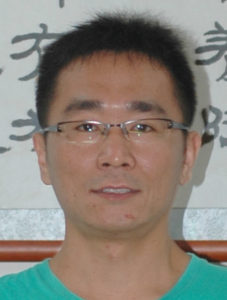 Background: Mr. Du received his Bachelor of Science degree from Huazhong Agricultural University in 2007 entered his Ph.D. program in Huazhong Agricultural University in 2008. His advisor is Dr. Lizhong Xiong. He was engaged in studying the molecular biology of resistance to hazards in rice. He studies the hormonal regulation of plants under the abiotic stress environment, epigenetic regulation, and biological rhythm regulation by using rice mutant screening.
Background: Mr. Du received his Bachelor of Science degree from Huazhong Agricultural University in 2007 entered his Ph.D. program in Huazhong Agricultural University in 2008. His advisor is Dr. Lizhong Xiong. He was engaged in studying the molecular biology of resistance to hazards in rice. He studies the hormonal regulation of plants under the abiotic stress environment, epigenetic regulation, and biological rhythm regulation by using rice mutant screening.
Citation: He works very hard and made a lot of progress covering a wide range of topics. He is able to define the mechanism of several gene functions. He is able to compare and contrast stress defense by plants and animals, which reflects his broad knowledge. He has a very clear mind and dedicated to the work. He is active as a student organizer in academic activities and a frequent visitor of RWMF blog.
Tianpeng Gu
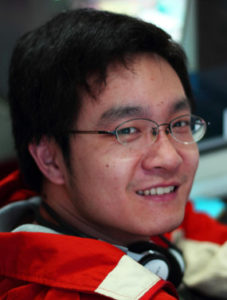 Background: Mr. Gu received his bachelor degree from Shandong University in 2007, and entered the Ph.D. program in the laboratory of Dr. Guoliang Xu at Biochemistry and Cell Biology, Shanghai Institutes for Biological Sciences, Chinese Academy of Sciences in 2007. His research has focused on the mechanism of epigenetic reprogramming in the early mouse embryo. He first managed to raise an antibody specific for the oxidation product in DNA, 5hmC. With this antibody, he discovered that 5hmC is generated in the male pronucleus of fertilized eggs. Moreover, he demonstrated that oxidation of 5mC to 5hmC is mediated by the dioxygenase Tet3 in a gene-knockout model.
Background: Mr. Gu received his bachelor degree from Shandong University in 2007, and entered the Ph.D. program in the laboratory of Dr. Guoliang Xu at Biochemistry and Cell Biology, Shanghai Institutes for Biological Sciences, Chinese Academy of Sciences in 2007. His research has focused on the mechanism of epigenetic reprogramming in the early mouse embryo. He first managed to raise an antibody specific for the oxidation product in DNA, 5hmC. With this antibody, he discovered that 5hmC is generated in the male pronucleus of fertilized eggs. Moreover, he demonstrated that oxidation of 5mC to 5hmC is mediated by the dioxygenase Tet3 in a gene-knockout model.
Citation: The candidate can explain his body of work adequately. He carried out most of the biochemical work. He independently found out the approach to generate hmC specific antibody. His description was clear and precise. He is also modest.
Xiaoqian Jiang
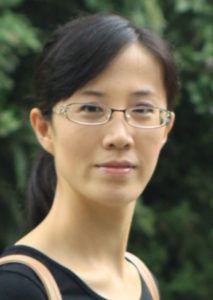 Background: Ms. Jiang received her bachelor degree from Shaanxi University of Science and Technology in 2007, and entered the Ph.D. program in the laboratory of Dr. Shiheng Tao at Northwest Agriculture and Forestry University in 2007. Her research focuses on evolutionary biology using computer-simulation methods. She revealed that the mutation rate in asexual populations was determined by both population size and mutation effects. Furthermore, she found that in the ‘‘strong-selection weak mutation (SSWM)’’ regime or in the ‘‘clonal interference (CI)’’ regime, deleterious mutations rarely influence the distribution of ‘‘selection coefficients of the fixed mutations (SCFM)’’; while in the ‘‘multiple mutations’’ regime, the accumulation of deleterious mutations would lead to a decrease in fitness significantly.
Background: Ms. Jiang received her bachelor degree from Shaanxi University of Science and Technology in 2007, and entered the Ph.D. program in the laboratory of Dr. Shiheng Tao at Northwest Agriculture and Forestry University in 2007. Her research focuses on evolutionary biology using computer-simulation methods. She revealed that the mutation rate in asexual populations was determined by both population size and mutation effects. Furthermore, she found that in the ‘‘strong-selection weak mutation (SSWM)’’ regime or in the ‘‘clonal interference (CI)’’ regime, deleterious mutations rarely influence the distribution of ‘‘selection coefficients of the fixed mutations (SCFM)’’; while in the ‘‘multiple mutations’’ regime, the accumulation of deleterious mutations would lead to a decrease in fitness significantly.
Citation: She was able to accomplish a complicated project and is productive. She is very independent as most of her work was done by herself. One interviewer thinks she has the potential for innovation. She is knowledgeable in many aspects. She answers questions clearly and is passionate about her research topic
Sayli Kong
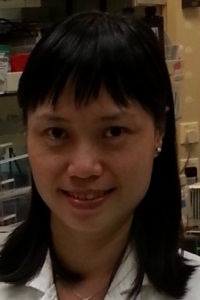 Background: Ms. Kong received her BS from Universiti Putra Malaysia and MS from National University of Singapore. She began her Ph.D. study under the direction of Dr. Edison T Liu at National University of Singapore in 2009. Her research focuses on estrogen receptor (ER) regulation and its impact on cellular biology. Using the workhorse MCF7 human mammary carcinoma cell as the study model, the genomewide binding events for estrogen receptor (ER) and its co-regulators, namely FOXA1 and GATA3, were mapped. Cellular reprogramming was regulated by the conjoint action of ERα, FOXA1 and GATA3 to a ligand inducible growth state. Growth and proliferation of breast cancer cells were shown to be related to the core estrogen responsive cassettes.
Background: Ms. Kong received her BS from Universiti Putra Malaysia and MS from National University of Singapore. She began her Ph.D. study under the direction of Dr. Edison T Liu at National University of Singapore in 2009. Her research focuses on estrogen receptor (ER) regulation and its impact on cellular biology. Using the workhorse MCF7 human mammary carcinoma cell as the study model, the genomewide binding events for estrogen receptor (ER) and its co-regulators, namely FOXA1 and GATA3, were mapped. Cellular reprogramming was regulated by the conjoint action of ERα, FOXA1 and GATA3 to a ligand inducible growth state. Growth and proliferation of breast cancer cells were shown to be related to the core estrogen responsive cassettes.
Citation: The committee recognizes her outstanding productivity and was impressed of her academic maturity, well organized presentation and confidence in science. She demonstrated that she is independent, and passionate about her research and career. She knows her research field well beyond her own subject and has a good understanding about the mission of RWMF. She interacted with each of committee members well and answered challenging questions confidently and clearly.
RWMF members at the award ceremony for the 2012 Ray Wu Prize
